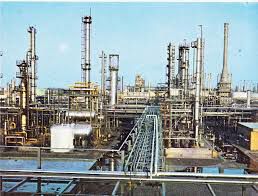THE COMING OF THE BRITISH CONSERVATIVE PARTY TO OFFICE IN 1951 AND THE NATIONALISATION OF THE ANGLO-IRANIAN OIL COMPANY’S CRISIS.
The British Government was in favour of intervention by the International Bank. Firstly, the loss of Persian oil was forcing Britain to spend some 25% of her dollar earnings on oil supplies, a problem in which ironically she was seeking the Bank’s help. Secondly, the Persian oil dispute was a threat to the economic stability of the Middle East.
However, while the International Bank was trying to work out a comprehensive plan to incorporate as much as possible of the demands of the two parties, Dr. Musaddiq expressed opposition at a press conference on 26th December 1951, to the reported terms of the International Bank’s plan. In particular, hostility was directed towards the re-engagement of the Anglo-Iranian Oil Company technicians, and selling oil to Britain at a discount on the international rate. On 31st December 1951, however, an International Bank mission arrived in Teheran headed by Hector Prudhomme, director of the International Bank’s loan department, and Torkild Rieber, petroleum advisor to the International Bank.
A few days before the arrival of the International Bank’s delegation in Teheran, a strong demonstration against a solution of the oil problem by recourse to the International Bank had taken place there. Therefore, the delegation were not optimistic that their mission would have a positive outcome. In their first meeting with Musaddiq, the representatives of the Vice-President of the Bank were told that the Bank’s proposals must be within the framework of the nationalisation law. However, the delegation still pressed ahead, and submitted the memorandum which they had brought with them from Robert L.Garner, the Vice-President of the International Bank. The contents of the memorandum were not new. They were similar to what the British Government had anticipated, which was mentioned earlier in this chapter, such as, the oil industry would be run by a neutral board of management, selected by the International Bank and completely responsible for it. Moreover, items like, the International Bank would have total power in the engagement and discharge of personnel, and in all other matters related with the operation of the industry. Finally, the Bank would make a bulk export contract from the sale of oil through established distribution channels, and the profits would be divided into three, one to Iran, one to the foreign bulk producers, and one to be held in reserve by the Bank.
On 3rd January 1952, Dr. Musaddiq rejected the Vice-President of the International Bank’s proposals, on the basis that the bank could intervene in the operation of the oil industry in Iran only as an agent of the Iranian Government. Furthermore, the Iranian Government would not share the profits with the purchasers of oil.
No progress could be expected so long as the Persian Government insisted that the International Bank should operate only for Iran’s account.41
Dr. Musaddiq’s response nearly brought about the collapse of the negotiations. However, after discussions with the joint oil committee and the American Ambassador, Musaddiq climbed down and agreed to continue the talks on general lines, and it was suggested that the delegation visit Abadan while waiting for further news from Washington. The attitude was maintained, thereafter, that the mission was only a fact-finding mission, and when it left on 13th January 1952, it was only to report to the International Bank. ‘The UK is entirely willing to have the Bank to continue to play the hand which has been started,’42 said Eden.
Robert Garner, the Vice-President of the International Bank, on 4th February 1952, sent a telegram to Musaddiq indicating that he would like to visit Iran himself in an attempt to reach a compromise. Musaddiq, the Iranian Prime Minister, sent the Vice-President a welcoming reply. On 11th February, Vice-President, Robert Garner, arrived in Teheran. Accompanying him were Prudhomme, Rieber, Ellsworth Clark, legal advisor, and Samuel Lipkowitz, economic advisor.
- PRO, London, T 236/ 3663, Treasury Records, Cabinet Persia (Official) Committee, Minutes of Meeting of the Committee held in Sir Roger Makins’ room, Foreign Office, Secret, 9th April 1952, p. 1.
- Department of State: Papers relating to the Foreign Relations of the United States, (Washington DC, Annual), 1952-54, Vol. IX, p. 175, the Near and Middle East, Eden to the International Bank’s Representative.



